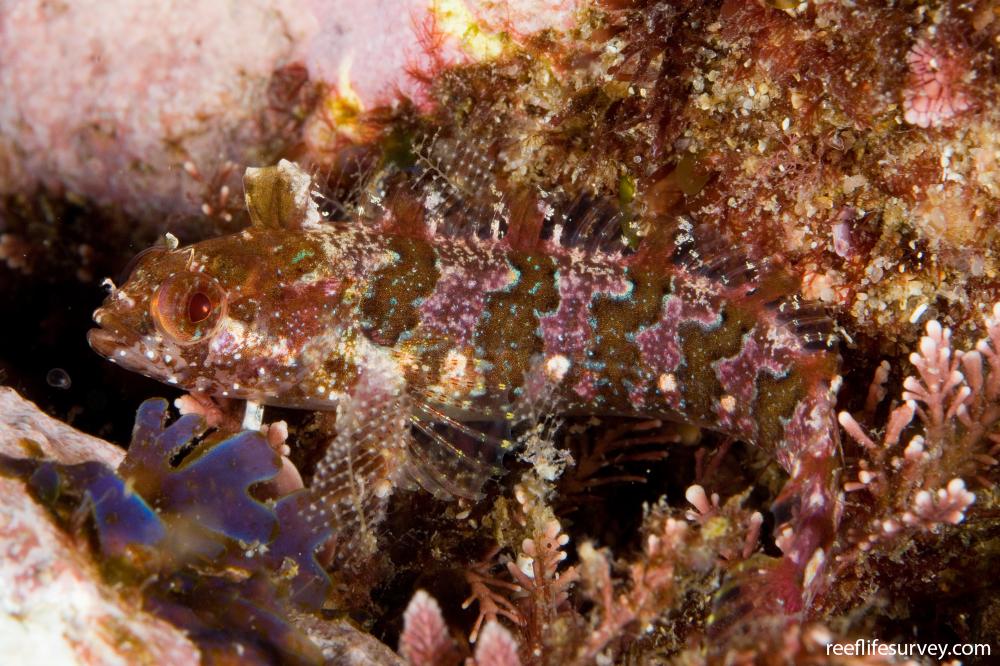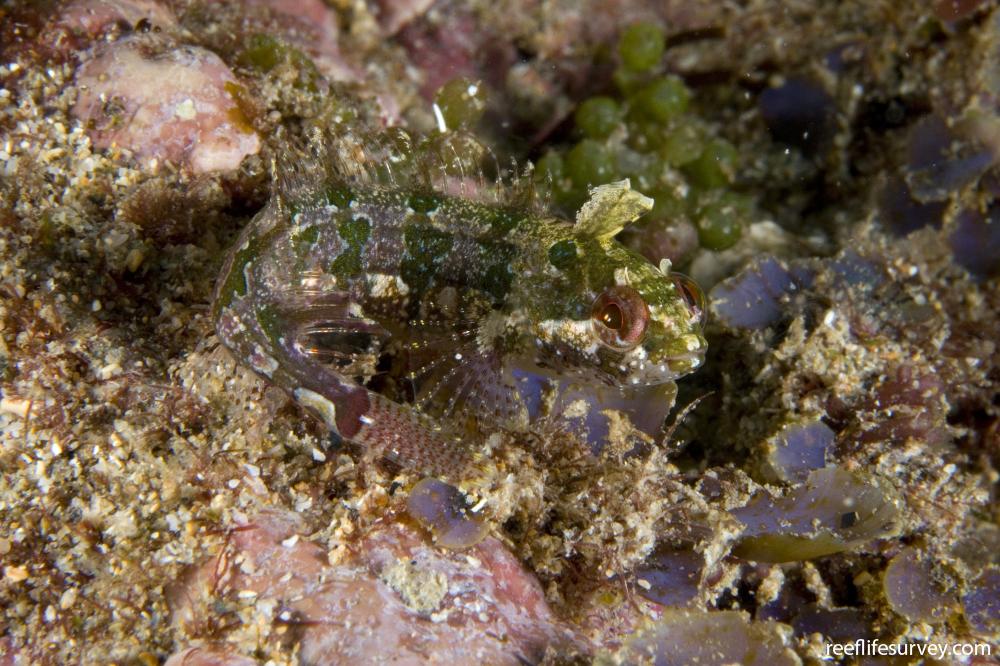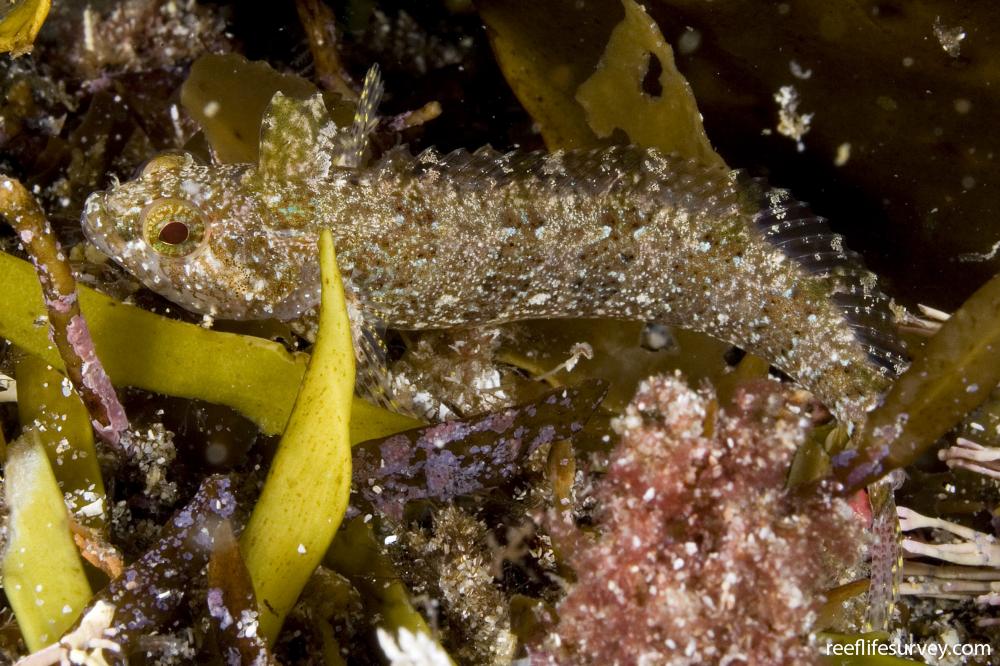Heteroclinus whiteleggii
Whiteleggs weedfish | Heteroclinus whiteleggeiSimilar Species
Same Genus
Distribution
Description
Six-seven bands plus roughly H-shaped mark on tail base. Colour variable and marks may be faint. Short club-shaped tentacles above eyes and short branched nasal tentacles are distinctive. First dorsal fin almost separate from 2nd dorsal. Light broken stripe or row of white blotches just below mid-line of body.
Information
Max Size: 10 cm
Sea Temperature Range: 15.3-25.2°C
Depth: N/A
Habitat Generalization Index: N/A
Also referred to as the SGI (Species Generalisation Index), this describes the habitat niche breadth of the species. Species with values less than 15 are found in a relatively narrow range of reef habitat types (specialists), while those over 25 may be found on most hard substrates within their range (generalists). Learn more here.
Conservation and Rarity
IUCN Status: Least Concern
Occurrence: Common (22.8% of sites)
Occurrence describes how often the species is found on surveys within its distribution. It is calculated as the % of reef sites surveyed by RLS divers across all the ecoregions in which the species has been observed
Abundance: Few (2 per transect)
Abundance is calculated as the average number of individuals recorded per RLS transect, where present.
Edit by: Andrew Green





























